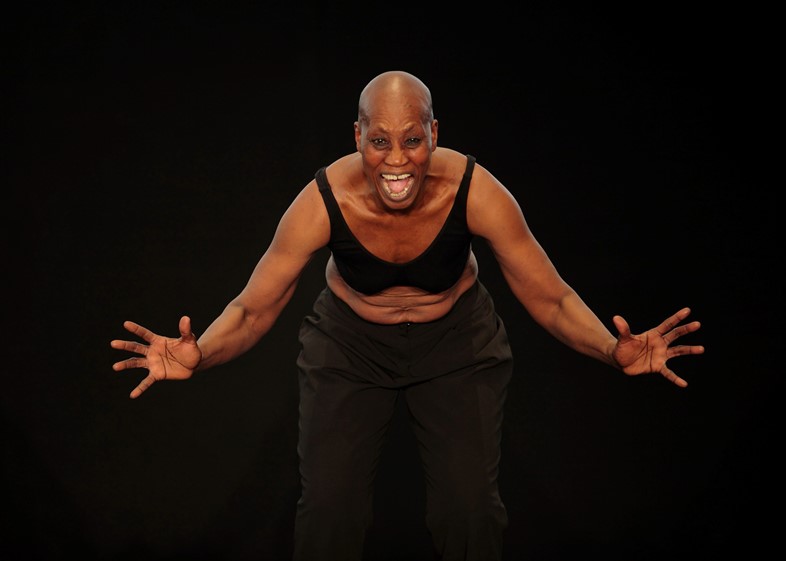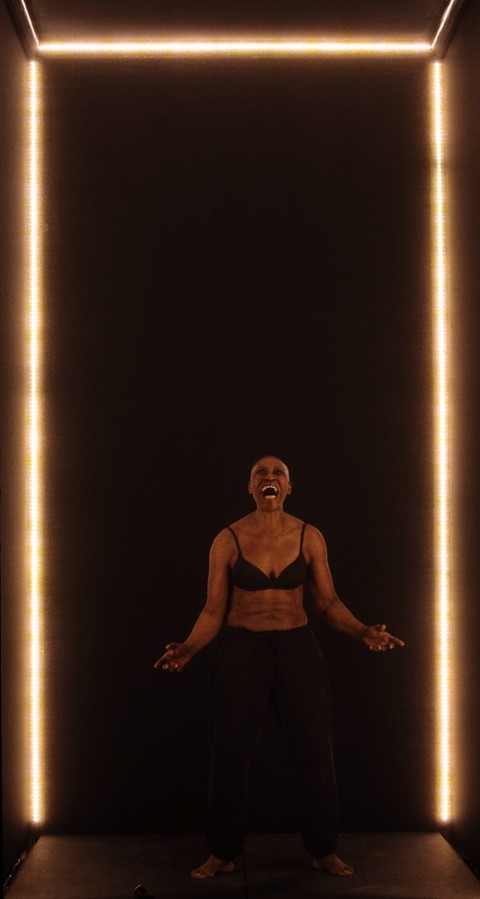As the French-Senegalese dancer performs an explosive new piece at the Southbank Centre, we spotlight the global influence of her electrifying work
Who? Hidden within the contours of Germaine Acogny’s movements are guttural emotions that evade words. Her writhing, marching, running, laughing and screaming form a unique kinetic dialect defined by a combination of modern European movement and traditional African choreography, otherwise known as ‘contemporary African dance’ – a discipline shaped by Acogny herself. “My first language is my body,” declares the Benin-born Senegal-raised dancer, phoning in from Dakar. “I chose to use my body as a mode of creative expression because it is more sincere. I think with my body; everybody can feel what I say, even if they don’t speak the same language as me.”
Through her famed solo works, namely Songook Yaakar (‘Facing up to Hope’) and Tchouraï (named after an incense burnt by Senegalese women to purify the house) she speaks the pains of colonialism, ancestral beauty, torment, desire and politics, articulating an approach which she describes as firmly planted in nature. Her cross-border career lists modern dance and ballet training in France during the 1960s, a stint in Brussels leading international African dance workshops, a directorship at Mudra Afrique school of dance in the 70s, and the opening of L’École des Sables in 1998 with husband Helmut Vogt – a centre for traditional and contemporary African choreography. But as much as Acogny’s discipline is rooted in technique and cultural voyage, it remains responsive and fluid, forming itself around the current climate. Simply put, contemporary African dance is “what we are doing now”.

What? As part of B(old), a new festival at London’s Southbank Centre, Acogny will perform Mon Elue Noire (My Black Chosen One), created specifically for her by French choreographer Olivier Dubois and soundtracked by Stravinsky’s The Rite of Spring. Contained within black walls, Acogny’s dynamic presence is felt through her wild and sometimes subtle gestures. She smokes a tobacco pipe, laughs infectiously, paces with a furious energy and delivers passages from the 1955 essay Discourses on Colonialism, by Martinican author and poet Aimé Césaire. What results is a personal rite that unpicks body politics, blackness and the landscape of colonialist histories in Africa by way of her abstract narration. “It was a collaboration, and it was a negotiation for my body. It was also politically my story,” she says. “For me the performance is an homage to my ancestors.”
Why? It was in her 1980 book, African Dance, that Acogny wrote her intentions for its future. Confronting assumptions that posited African dance and its myriad forms as devoid of ‘technique’, the dancer asserted the precision, complexity and richness it contains, while proclaiming the necessary space it should occupy in the wider landscape of modern dance. She writes her vision for the canon as “a totally different path, firmly town-dwelling and modern, reflecting Africa today, an Africa of skyscrapers, an Africa of great international contradictions. We do not want to subjugate negro dancing. We would just like it to be a part of modern civilisation and that this dance can occupy the place that it has right to. It will only then be able to completely play its role as entertainment and reaction.”
Now, at 74 years old, Acogny holds no nostalgia for her younger body. Each morning, she nurtures her limbs with stretches, walks, power marches and meditation before heading to the studio for rehearsal. In fact she is more content with her current practice, which bears the evolution of over 40 years of storytelling, and is more forward-looking than ever. “When I was younger, I danced with energy and power. It used to be a more exterior power and energy, now it becomes something that comes from inside, and people feel it,” she muses. “Sometimes even a small movement can be more impactful because of the intention behind it, more so than the expressive outside movements. The older I get, the more I am better.”
Germaine Acogny will perform Mon Elue Noir (My Black Chosen One) on the May 18, 2018 at the Southbank Centre, London, as part of (B)old, a new festival profiling artists aged 65 and over.
